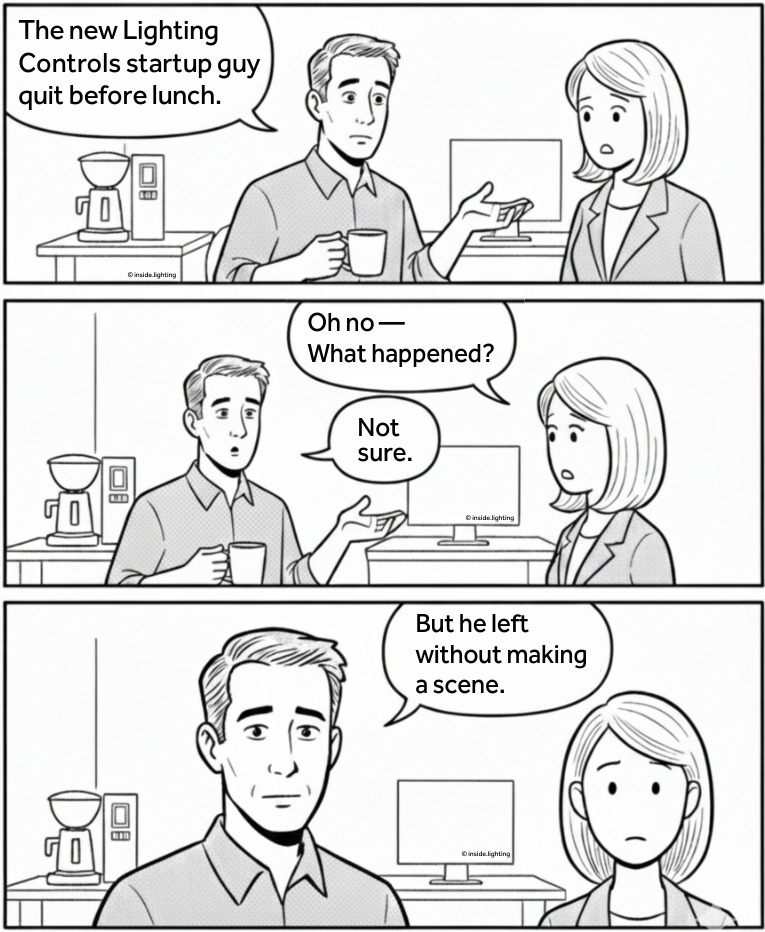October 7, 2024
Study: Electric Light Fails to Replace Natural Light in Dorms

Windowless rooms with only electric light impact residents' mental well-being and productivity
A $110 million donation from Charlie Munger, longtime Vice Chairman of Berkshire Hathaway, to the University of Michigan led to the construction of the Munger Graduate Residence Hall, a mostly windowless dorm facility that opened in 2015. The 380,000-square-foot, $155 million building houses 631 graduate students, with rooms designed primarily for rest and study.
To mitigate concerns over the lack of natural light, the dormitory design relied on electric lighting to compensate for the absence of windows in the private bedrooms. The study does not provide detailed information on the specific types of electrical fixtures used, such as fixture types or light intensity, nor does it indicate whether the lighting was designed with health or circadian concerns in mind.
Munger insisted his design would foster social interaction in shared spaces, despite concerns over the potential psychological effects of living in windowless conditions.
A recent scientific study, Perceived Effects of Residential Design on Mental Well-being: A Quasi-experimental Study of the University of Michigan's Munger Graduate Residences, authored by Hannah E.W. Myers and Kimberly A. Rollings and published in the Journal of Environmental Psychology, evaluated the impact of windowless dorm rooms on residents' mental well-being.
The findings showed that Munger residents reported significantly lower levels of mental well-being compared to non-Munger residents, with the lack of windows in bedrooms being a major factor contributing to disrupted circadian rhythms, impaired mood, and decreased social connectedness.
Windowless Bedrooms: A Key Concern
The most striking finding from the study was the negative impact associated with the lack of natural light windows in Munger's private bedrooms. Of the 631 individual bedrooms in the Munger complex, 87% lack windows, a design choice intended to promote social interaction in the building’s shared, naturally lit common areas. However, nearly 76% of Munger residents reported that windowless bedrooms negatively affected their mental well-being, with issues such as disrupted circadian rhythms, decreased productivity, and impaired mood being cited.
In 2021, CNN explored life in the University of Michigan’s mostly-windowless dorms that house 631 grad students. New data shows the impact on residents. We'll share findings later today. Here’s the original CNN article. https://t.co/CTuPFzatYy
— Inside Lighting (@InsLighting) October 7, 2024
This aspect of environmental control — particularly the absence of natural light — was strongly associated with lower scores on mental well-being measures, including attentional function and social connectedness. Despite efforts to offset these shortcomings with amenities such as a gym, rooftop lounge, and study spaces, students indicated that the design choice of windowless rooms was a major contributor to their diminished mental health.
Impact on Social Connectedness and Control
Another major finding concerned the effects of high-density living. Each Munger unit houses six or seven residents, all with private bedrooms and bathrooms, but sharing kitchen, dining, and living spaces. While the design aims to encourage interaction, many residents reported a lack of control over their social environment. Randomly assigned roommates and crowded common areas led to higher levels of stress and social withdrawal, especially when residents were forced to choose between navigating social tensions in shared spaces or retreating to the isolation of their windowless bedrooms.
By contrast, non-Munger residents, who typically lived in less densely packed environments with access to windows, reported better overall mental well-being, as well as more positive social interactions and a stronger sense of control over their personal space.
Environmental Quality: A Persistent Issue
Munger residents also raised concerns about indoor environmental quality (IEQ), particularly relating to temperature, ventilation, and lighting control. Poor air circulation, especially in windowless bedrooms, was frequently cited as a source of discomfort, contributing to sleep disturbances and respiratory issues. Some residents also noted that the building's HVAC system failed to adequately address odors and humidity, compounding the sense of discomfort and negatively affecting their mental well-being.
Non-Munger residents, while also expressing some dissatisfaction with environmental factors, generally reported fewer issues with lighting and ventilation, thanks to access to natural light and better temperature regulation in their residences.
Amenities and Design Trade-offs
Despite these challenges, many Munger residents expressed appreciation for the building’s modern amenities. Access to fitness facilities, social programming, and rooftop spaces provided opportunities for stress relief and socialization, which some students credited with improving their mental well-being. However, these benefits were not enough to fully counterbalance the negative effects of windowless bedrooms and crowded living arrangements.
The study highlights the complex relationship between housing design and mental well-being, particularly in high-density, multi-resident settings like the Munger Graduate Residences.
Another University Almost Followed Suit
Years after the University of Michigan project, Charlie Munger, pledged $200 million to the University of California, Santa Barbara in exchange for the university adopting his architectural plans for a behemoth 1.7 million square foot, 11-story dormitory. The design, nicknamed “Dormzilla”, included mostly windowless rooms for over 4,500 students. This time, Munger's design included electric light "windows" with Circadian tuning features that Munger insisted would be more beneficial than natural light.
Despite pushback from architects and health advocates, who raised concerns about the impact on students' well-being, UCSB initially accepted the funds under the condition that his plans were followed. Ultimately, concerns over the negative impact on residents' well-being led UCSB to scrap the project in 2022.










